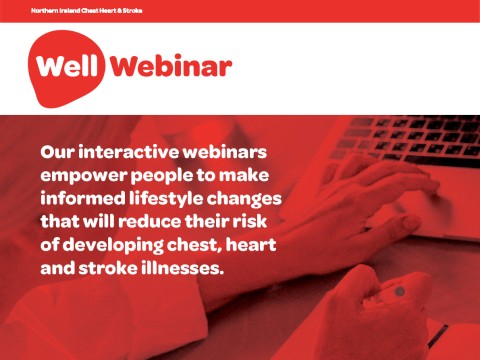Search results
Search our library
- Website
This is a programme that can make a big difference to your life. It can help you manage your feelings when you are stressed, worried or depressed and learn simple practical skills to help you cope with life’s challenges.
- This is a six-session programme using Cognitive Behavioural Therapy (CBT) concepts – the most evidenced-based talking therapy for people affected by low mood, anxiety or depression.
- The programme has been developed by Dr Chris Williams, professor of psychiatry at the University of Glasgow and a recognised expert in developing self-help resources based on CBT.
- It introduces participants to the ‘Five Areas Approach’ which illustrates that events and situations in our lives affect how we think, how we feel, how we behave and also affect us physically.
- Thinking and behaviour are the two areas that we have the most control over, if we tend to think and/or behave in extreme and unhelpful ways, it can adversely affect the other areas and lead to us getting caught in a ‘vicious circle’. The programme, therefore, focuses on how we can challenge and change our thinking and behaviour in order to turn the circle into a ‘virtuous circle’.
We are delighted to offer delivery of our Living Life to the Full programme online through Zoom as an alternative to face to face delivery during Covid-19
- Video
Russell Foster is a circadian neuroscientist: He studies the sleep cycles of the brain. And he asks: What do we know about sleep? Not a lot, it turns out, for something we do with one-third of our lives.
In this talk, Foster shares three popular theories about why we sleep, busts some myths about how much sleep we need at different ages -- and hints at some bold new uses of sleep as a predictor of mental health.
- Website
New Study: Sleep Is Literally a Deep Clean for Your BrainSleep washes away toxic gunk that builds up in your brain. Do you really want to leave it there?
- Website
A common barrier to sleep is having a hard time switching off from thoughts. If you find it hard to switch off from worries and negative thinking you might find our worry resources helpful.
- Website
In order for sleep to happen, there needs to be deep relaxation. Focus on this first. Deep relaxation is very restorative. Sleep should follow, but if it doesn't, try not to worry too much as this will make you feel even more wide awake. Here are some tips that might help improve your sleep.
- Website
What can I do to fight fatigue while working night shifts? Firstly, don’t try to 'power through it'. Fatigue puts you, your colleagues and your patients at risk.
- Website
It’s common to have problems with sleep. This guide aims to help you:
- Recognise the symptoms of sleep problems
- Understand what sleep problems are, what causes them, and what keeps them going
- Find ways to manage sleep problems
- Website
- Website
 Document
DocumentNorthern Ireland Chest, Heart and Stroke interactive webinars empower people to make informed lifestyle changes that will reduce their risk of developing chest, heart and stroke illnesses.
The webinars are available on a wide range of topics, providing
the information and tools needed to enable individuals to look after
and improve their health. Webinars can be delivered live or recorded.
Membership of the Regional Workforce Wellbeing Network
The Regional Workforce Wellbeing Network is led by Dr Sarah Meekin, Head of Psychological Services in BHSCT and the majority of the 17 Health and Social Care organisations in Northern Ireland are represented in this network. At the start of the COVID-19 response this network was tasked with supporting managers and staff with the development and delivery of psychological support services for staff working across Health and Social Care (HSC) in Northern Ireland.
- Belfast Health and Social Care Trust
- Business Services Organisation (BSO)
- Department of Health
- GP Federations in Primary Care
- Health & Social Care Quality Improvement Network
- HSC Healthier Workplaces Network
- HSC Leadership Centre
- HSCNI
- Independent Care Providers
- Northern Health & Social Care Trust
- Northern Ireland Ambulance Service
- Northern Ireland Fire & Rescue Service
- Pharmacy Forum NI
- Public Health Agency
- Royal College of Nursing
- South Eastern Health & Social Care Trust
- Southern Health & Social Care Trust
- Western Health & Social Care Trust